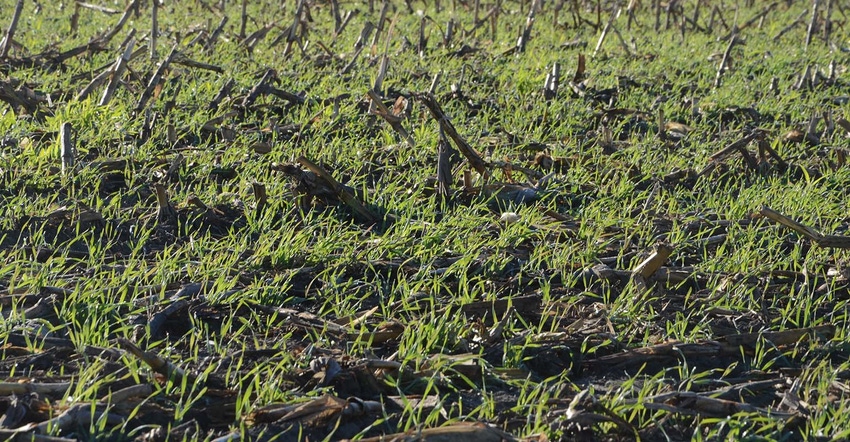March 6, 2020

The North America Climate Smart Agriculture Alliance submitted a series of recommendations stressing the importance of the climate smart agriculture framework to the House Select Committee on the Climate Crisis.
NACSAA is a farmer-led coalition facilitated and supported by Solutions from the Land and other partners that focuses on helping both producers and the value chain utilize climate smart agriculture strategies to enhance the adaptive capacity of our food system.
Strategies range from minor adjustments in existing production to major changes in agricultural systems and best management practices, and are organized around the three climate smart agriculture pillars:
Pillar One: Sustainable intensification of production and ecosystem integrity
Pillar Two: Adaptations that build resiliency
Pillar Three: Systems that allow farmers to retain and sequester carbon or reduce greenhouse gas emissions and simultaneously improve profitability
Led by NACSAA's Enabling Policies team, chaired by Iowa farmer Ray Gaesser, the recommendations represent a response to two questions from the House committee:
What policies should Congress adopt to reduce carbon pollution and other greenhouse gas emissions and maximize carbon storage in agriculture?
What policies should Congress adopt to help farmers, ranchers, and natural resource managers adapt to the impacts of climate change?
The priority areas of policy proposed by NACSAA and targeted by the recommendations:
Manage the Water Cycle - Acknowledge and prioritize through funding, infrastructure and practices the extreme variations in the hydrologic cycle marked by drought, evapotranspiration, increased and more intense precipitation events, and increasing degradation of soil and water resources.
Financial assistance and incentives - Promote and assist voluntary, locally led, incentive-based conservation efforts.
Technical Assistance - Rebuild the capacity (both resources and staffing) of NRCS, state conservation agencies and local conservation districts to provide much needed technical assistance in writing and implementing Climate Smart Agriculture plans.
Research - Support and encourage system-level, integrated science research on climate risks; adaptation innovations; and the economic value and effectiveness of CSA production practices.
Investments in Infrastructure - Catalog and facilitate priority repairs and upgrades to vital production, inland waterways, and wireless broadband connectivity infrastructure.
Risk Management - Adjust federal crop insurance programs to incentivize and expedite adoption of CSA practices to mitigate uncertainty and risks.
Decision-making and Capacity Building - Develop farmer-informed, accessible, pragmatic, and affordable decision-making approaches and tools that connect land managers with data, knowledge and resources.
Carbon Pricing Mechanisms - Support a carbon pricing mechanism that also provides payments to farmers for carbon fixation in their soil.
Payments for Ecosystem Services - Support the development of quantified ecosystem benefits and a voluntary, market-based, private-sector funding mechanism/incentive for ecosystem services.
Clean Energy - Pursue the reduction of carbon through market adjustment and production diversification opportunities to expand bio-based fuels for transportation and electricity production.
The Alliance's submission was constructed from input gathered from NACSAA's members. In developing these suggestions for the Select Committee, NACSAA offers a collective body of work which - though not every partner may endorse every item on the list - presents a composite consensus of important climate change enabling policies evolving from North American agricultural stakeholders.
Source: NACSAA, which is solely responsible for the information provided and is wholly owned by the source. Informa Business Media and all its subsidiaries are not responsible for any of the content contained in this information asset.
Read more about:
ClimateYou May Also Like




